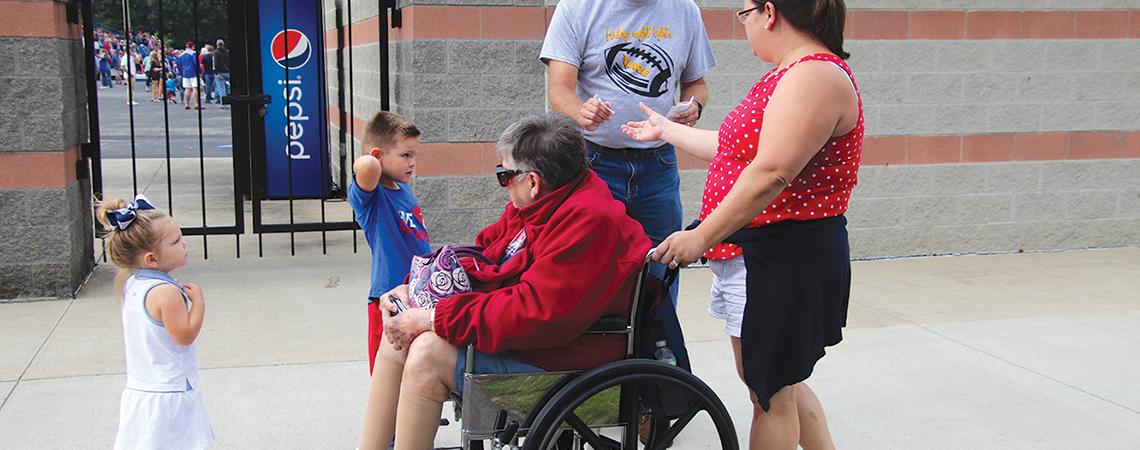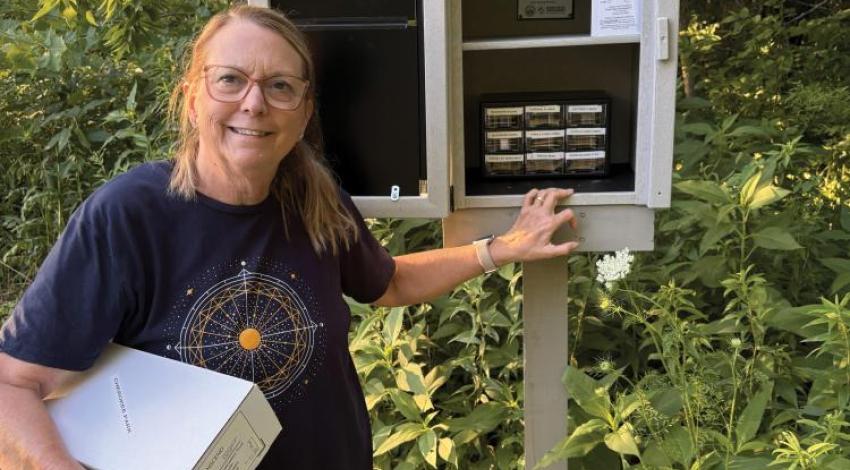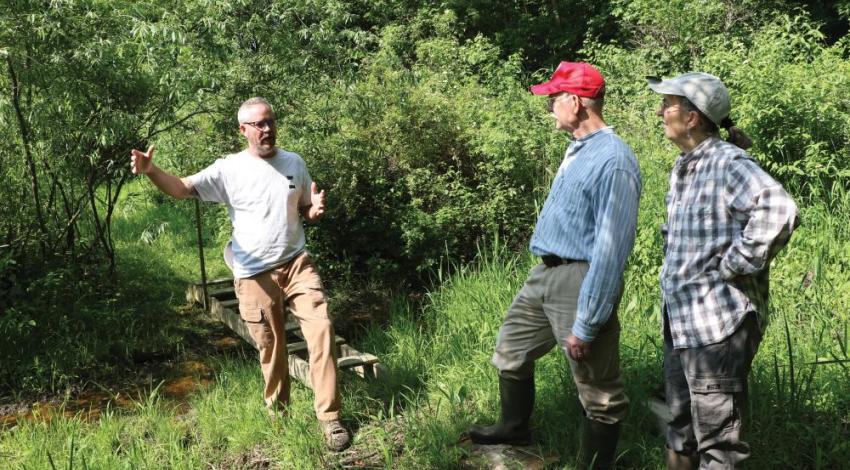Every now and then, Anthony Smith, president and CEO of Union Rural Electric Cooperative in Marysville, finds he’s dashed out of the house in the morning without eating breakfast, so he ends up in the drive-thru lane at the fast-food place next to his office to grab a bite on his way to work.
It’s nearly always quick and without incident, but one recent morning, the worker who handed him his sandwich stopped him. Because Smith lives in the community and writes a regular column in URE’s local pages in Ohio Cooperative Living, folks often recognize him when he’s out and about, and he’s never quite sure what to expect when they do.
“Sometimes, people might want to talk to me about their rates or some little problem they might be having,” Smith says, “but she just looked at me and said, ‘Thank you.’ She wanted to tell me what a difference we had made to her family by providing an unexpected bill credit on her last electric bill.”
Co-op employees such as Union Rural Electric Cooperative CEO Anthony Smith (gray shirt) can often be found interacting with co-op members in a way that employees of similar industries do not.
Every now and then, Anthony Smith, president and CEO of Union Rural Electric Cooperative in Marysville, finds he’s dashed out of the house in the morning without eating breakfast, so he ends up in the drive-thru lane at the fast-food place next to his office to grab a bite on his way to work.
It’s nearly always quick and without incident, but one recent morning, the worker who handed him his sandwich stopped him. Because Smith lives in the community and writes a regular column in URE’s local pages in Ohio Cooperative Living, folks often recognize him when he’s out and about, and he’s never quite sure what to expect when they do.
“Sometimes, people might want to talk to me about their rates or some little problem they might be having,” Smith says, “but she just looked at me and said, ‘Thank you.’ She wanted to tell me what a difference we had made to her family by providing an unexpected bill credit on her last electric bill.”
Like many electric cooperatives, URE issues capital credits to its consumer-members. When the amount collected from electric bills is more than the cost to provide electricity, that excess money is returned to the members who pay those bills. Customers of investor-owned utilities like AEP and Dayton Power and Light don’t see those returns — profits are given to shareholders instead.
Often, cooperatives hold those excess funds in reserve for a number of years, using them for improvements and maintenance to the electrical system, before issuing the credits. But this year, Smith and the URE board recognized that the community was being hit hard by the coronavirus pandemic and decided on an early distribution of the entire 2019 credit to try to ease that burden. It was enough in many cases to pay nearly an entire month’s electric bill, even for newer members who usually have to wait much longer to be eligible for that distribution.
“That’s just who we are,” Smith says. “We’re not here for the big profit — we provide a service and we improve lives, in lots of ways besides just keeping the lights on.”
Ohio electric cooperatives don’t just give lip service to customer service. Anyone can say they care about the customer, but the co-ops live that attitude every day. Nearly all survey their members, using the American Customer Satisfaction Index (ACSI) to put actual data behind the anecdotal evidence they get in the drive-thru lane.
ACSI is the only national cross-industry measure of customer satisfaction in the United States. In Ohio, electric cooperatives ask their members about such things as member service, cost and quality of electric service, social responsibility, bills and payment options, communication, and employees.
In the latest survey, which was completed in the early stages of the pandemic in Ohio, 14 of the state’s 24 co-ops earned their highest-ever scores. In an industry where the average satisfaction score is 73, Ohio’s co-ops averaged 87, and five — including URE — were at 90 or above.
“Members recognized everything the co-ops did to safely and positively respond to the COVID-19 crisis,” says Doug Miller, vice president of statewide services for Ohio’s Electric Cooperatives, the statewide trade association that provides services to the co-ops. “When we do the right thing each and every day, we build up a bank of capital in the form of loyalty and trust among our members. Then when have to make difficult decisions like rate increases or a return to normal collection procedures after the voluntary suspension of disconnections, the members understand that we’re doing what we need to do.”
“We’re definitely proud of our ACSI score,” Smith says, “but it’s really just a side effect of who we are in the community. Since we’re right here, we can make decisions and take action a lot more quickly than maybe some of the larger investor-owned utilities can to take care of any needs that might come up.
“It’s also a way to help us tell our story,” he says. “That number reinforces that, hey, this is another reason you can be proud of this co-op, which, by the way, you also own and are an important part of.










